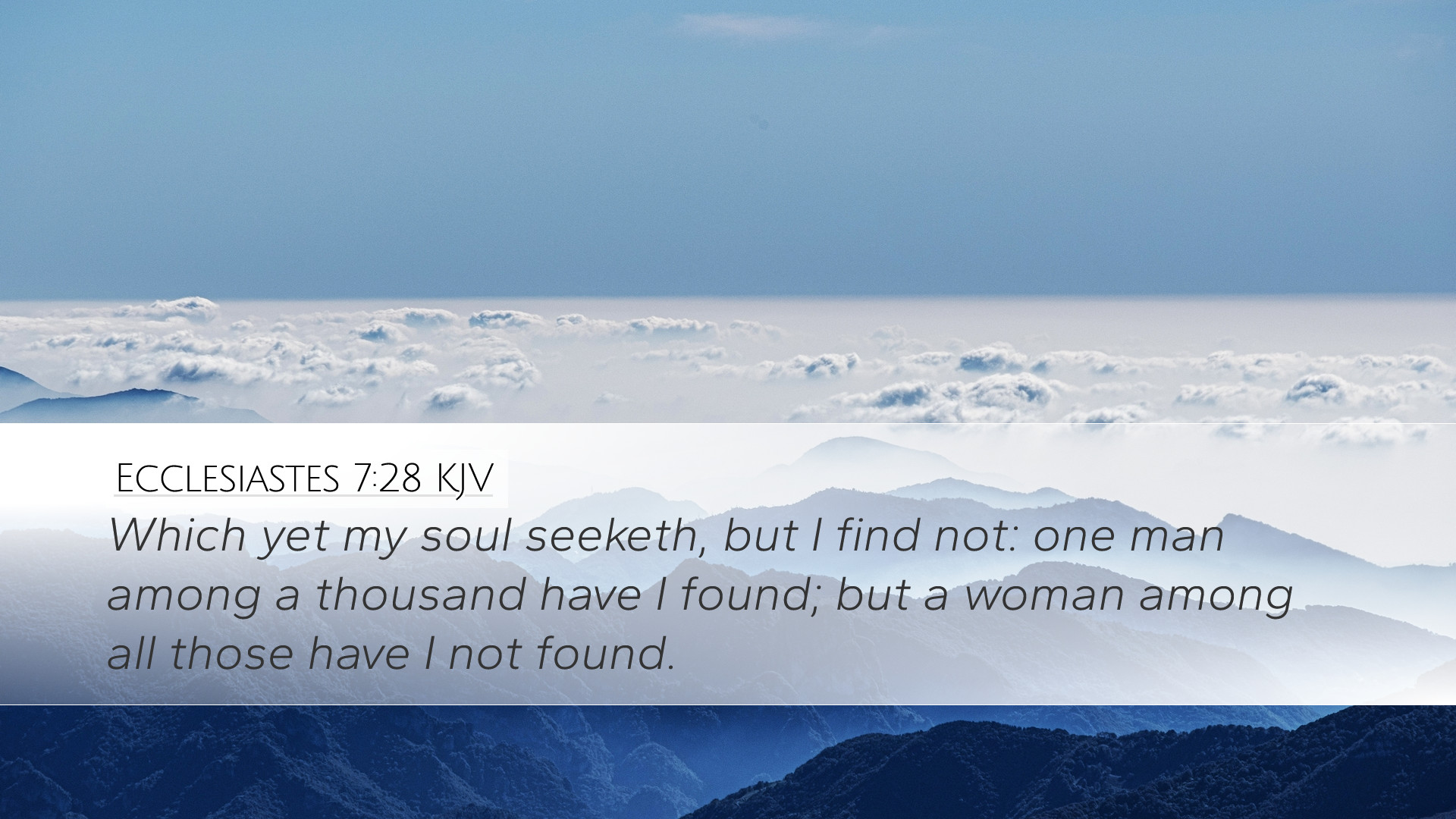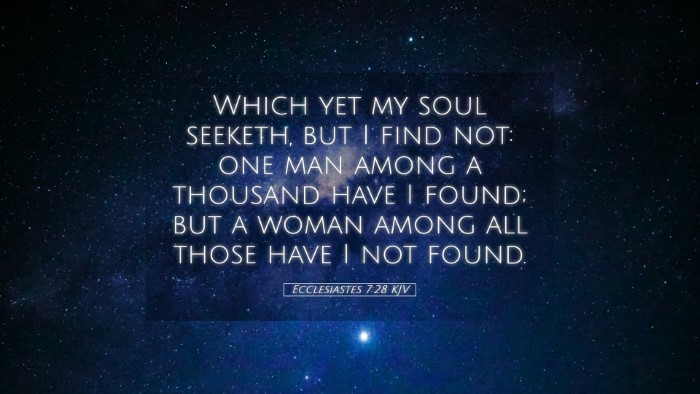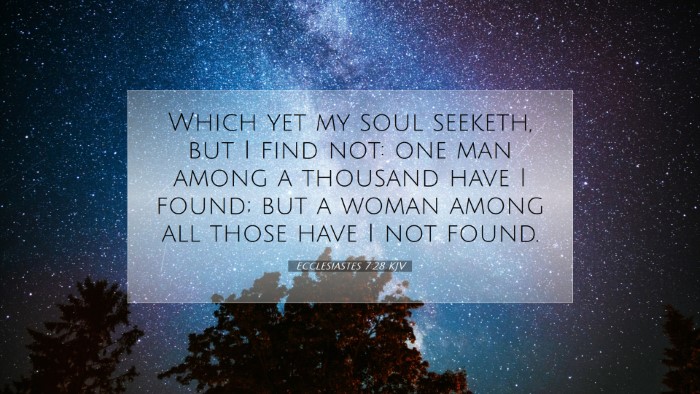Commentary on Ecclesiastes 7:28
Scripture: "Which yet my soul seeketh, but I find not: one man among a thousand have I found; but a woman among all those have I not found." (Ecclesiastes 7:28)
Introduction
The book of Ecclesiastes, traditionally attributed to Solomon, presents a profound and often somber examination of life's meaning and purpose. In chapter 7, verses 1-29, the text explores themes of wisdom, morality, and the human condition. Ecclesiastes 7:28, in particular, draws attention to the search for righteousness amidst a flawed humanity.
Exegesis of Ecclesiastes 7:28
This verse reflects the introspective journey of the Preacher (traditionally believed to be Solomon) as he grapples with the nature of life and the rarity of true virtue. The search for a righteous and wise companion is emphasized.
Key Insights from Commentaries
-
Matthew Henry:
Henry notes that the statement points to the scarcity of a wise and understanding individual. He sees this pursuit as one of great importance, stressing that while wisdom can sometimes be found in men, finding a virtuous woman is notably challenging. Henry emphasizes that this may reflect the cultural context of his time, where male righteousness was often more celebrated than female virtue.
-
Albert Barnes:
Barnes delves into the significance of the phrase “one man among a thousand.” He interprets this to mean that true wisdom is exceedingly rare. The numerical expression underscores the difficulty in finding a single person who exemplifies wisdom and righteousness. Additionally, Barnes reflects on the societal roles of men and women, suggesting that while men may occasionally display righteous behavior, it appears more difficult in women, emphasizing a need for understanding God’s grace over human merit.
-
Adam Clarke:
Clarke provides a critical response to the verse by analyzing the profound implication of the Preacher’s lament. He suggests that the lack of virtuous women may allude to the moral decay present in society. Clarke also points to the idea that this observation is not a denigration of women, but rather an observation regarding the prevalence of wisdom in a largely corrupt world. His commentary encourages readers to consider the broader implications of seeking righteousness in their lives.
Theological Reflections
The verse invites serious theological reflection on the nature of humanity and the quest for righteousness. It serves as a somber reminder of the fallen state of humanity where finding true wisdom is an arduous task. This reflection is central for theological discourse among pastors and scholars seeking to understand sin, grace, and redemption.
The Search for Wisdom
The search for wisdom is a recurring theme in Ecclesiastes. The Preacher’s remark that he "finds not" suggests a divine paradox: wisdom is paramount for life, yet it is often elusive. This empty pursuit can lead to profound despair if not anchored in a theological understanding of God’s sovereignty and grace.
Implications for Ministry and Life
For pastors and leaders, this passage highlights the importance of fostering wise and godly communities. Within church contexts, the emphasis on mutual edification and encouragement towards wisdom can serve as a vital ministry function. Developing spaces where righteousness is valued can not only bolster personal growth but also the church body as a whole.
Conclusion
Ecclesiastes 7:28 serves as a poignant reminder of the rarity of both wisdom and virtue in humanity. It challenges readers to pursue righteousness diligently and recognize that while seeking virtue can feel like a solitary undertaking, there remains hope in God's provision for wisdom through Christ. As individuals and communities strive for wisdom, they embody the truth of reliance on God's grace amidst the imperfections of life.


